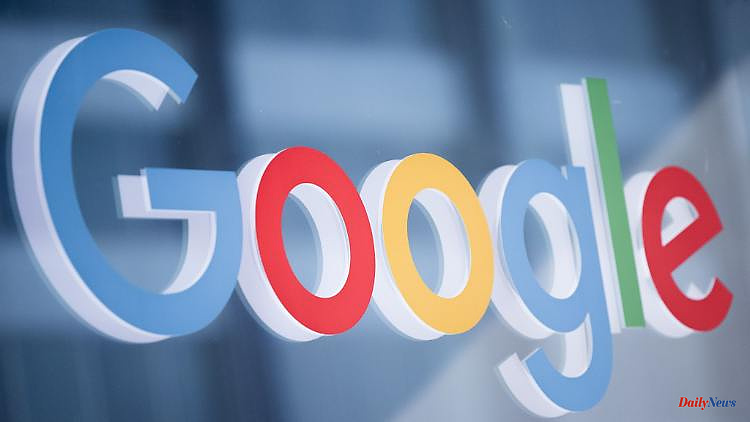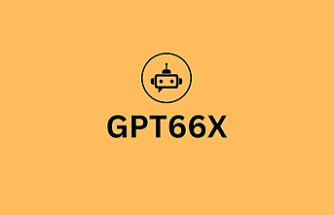In September 1997, Larry Page registered google.com as a domain name. It was probably a mistake. If Page could have googled back then, we might be googling now.
A world-changing word has its birthday: 25 years ago, the course was set for "googling" to become a synonym for internet searches. It could have turned out differently. When Stanford students Larry Page and Sergey Brin started developing a search engine in 1996, it was initially called Backrub. It was a playful reference to the seminal idea that hits are more relevant when they have more links - backlinks.
However, after just a few months, Page and Brin came to the conclusion that a successful search engine needed a catchier name. At times they favored "The Whatbox," as well-known Silicon Valley journalist Steven Levy wrote in his book on Google history. However, on a September day in 1997, Page's roommate threw out the term "googol," the mathematical term for a 1 followed by 100 zeros. Page liked the word. According to legend, the roommate typed the misspelled "Google" into the search for available domain names. He was still available - and within a few hours Google.com was occupied by Page.
It then took almost a year until Google was registered as a company on September 4, 1998 - in order to be able to cash a check for $100,000 from Sun Microsystems co-founder Andreas von Bechtolsheim. The mission: to organize all information in the world and make it accessible to everyone. The credo, which is no longer mentioned: "Don't be evil" - do nothing evil. First the servers ran from the student dorm, then Page and Brin looked for a garage in the heart of Silicon Valley as the first office. Your landlady, Susan Wojcicki, now runs the video subsidiary Youtube.
Page was the company's first CEO - but investors were uneasy about handing over the fast-growing business to two founders who weren't even 30 years old. In 2001, for example, the experienced manager Eric Schmidt was brought to Google as a kind of "adult supervisor". For ten years, until a mature page took over again, fortunes were controlled by a kind of "troika". Although Schmidt was the head of the group, the founders had the freedom, for example, to buy the start-up behind the Android smartphone system, which is now the market leader, without being asked, as he later recalled.
Just as innovative as the search engine algorithm was Google's idea of how to make money with it: with small ads in the vicinity of the hits - which match what the user is looking for. You only have to pay if the ad is clicked, and the exact price is determined in an auction process.
With such mini deals you can rake in billions with the size of Google. Despite all the new activities, the search ads are still the basis of the business of Google - and also of the umbrella company Alphabet as a whole. In the past quarter, the parent company achieved total sales of around 69.7 billion dollars (69.7 billion euros), of which a good 56.3 billion dollars were advertising revenues from Google. Longtime Google boss Sundar Pichai also took over the management position in the umbrella group from Page.
Even in the early years, it became clear that Google's ambitions were not just limited to Internet searches. True to the goal of organizing all the information in the world, people started scanning books on a large scale. With the project, the Google founders got a bloody nose for the first time with their do-gooder intentions. Authors and publishers saw copyright violations and threats to their business, and went to court. Google Books made slow progress after that.
More conflicts followed. Media houses accused Google of destroying their business basis by distributing news free of charge. Rating services such as Yelp have criticized the search engine for sucking up their content - causing users to get stuck on Google. Price search engines felt disadvantaged.
EU Competition Commissioner Margrethe Vestager has already taken tough action three times. In 2017 there was a fine of 2.4 billion euros with the allegation of unfair competition in the shopping search. In July 2018, the record fine of 4.34 billion euros followed for Google's behavior on Android. Eight months later, 1.49 billion euros were added because, in the Commission's view, Google had illegally obstructed other providers in search engine advertising in the "AdSense for Search" service. But Google digested the amounts with ease.
After Europe, however, politicians from both the Republicans and the Democrats are now also targeting Google in the competition in the USA. Under then-President Donald Trump, the US Department of Justice filed a lawsuit in October alleging that Google was illegally protecting its dominant position in Internet search and related advertising. The group denies the allegations.
Fears of data protection keep coming up. Does Google now know too much about its users? Almost a decade ago, the idea of the Google Glass computer glasses ultimately failed due to concerns that the wearer could film unnoticed by others. Google learned something new: With a currently tested pair of glasses that can display text in foreign languages as a translation for the wearer, it immediately means that they do not record videos.












